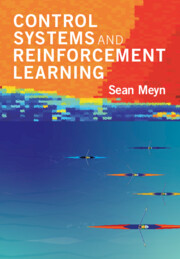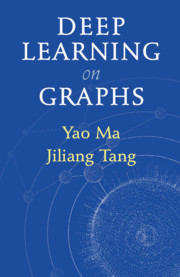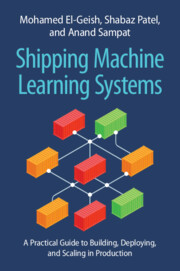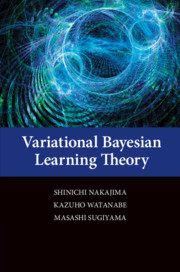Control Systems and Reinforcement Learning
A high school student can create deep Q-learning code to control her robot, without any understanding of the meaning of 'deep' or 'Q', or why the code sometimes fails. This book is designed to explain the science behind reinforcement learning and optimal control in a way that is accessible to students with a background in calculus and matrix algebra. A unique focus is algorithm design to obtain the fastest possible speed of convergence for learning algorithms, along with insight into why reinforcement learning sometimes fails. Advanced stochastic process theory is avoided at the start by substituting random exploration with more intuitive deterministic probing for learning. Once these ideas are understood, it is not difficult to master techniques rooted in stochastic control. These topics are covered in the second part of the book, starting with Markov chain theory and ending with a fresh look at actor-critic methods for reinforcement learning.
- Presents optimal control as an accessible path to understanding the goals and behavior of current reinforcement learning techniques
- Focuses on the ODE method to provide a large toolbox for algorithm design, methods to estimate the speed of learning, and insight as to why algorithms sometimes fail
- Contains summaries of most reinforcement learning algorithms, and worked examples to guide the choice of 'meta parameters' that appear in each of these recursive algorithms
- Over 100 exercises - theoretical and computational - illustrate key concepts and applications
Reviews & endorsements
'Control Systems and Reinforcement Learning is a densely packed book with a vivid, conversational style. It speaks both to computer scientists interested in learning about the tools and techniques of control engineers and to control engineers who want to learn about the unique challenges posed by reinforcement learning and how to address these challenges. The author, a world-class researcher in control and probability theory, is not afraid of strong and perhaps controversial opinions, making the book entertaining and attractive for open-minded readers. Everyone interested in the "why" and "how" of RL will use this gem of a book for many years to come.' Csaba Szepesvári, Canada CIFAR AI Chair, University of Alberta, and Head of the Foundations Team at DeepMind
'This book is a wild ride, from the elements of control through to bleeding-edge topics in reinforcement learning. Aimed at graduate students and very good undergraduates who are willing to invest some effort, the book is a lively read and an important contribution.' Shane G. Henderson, Charles W. Lake, Jr. Chair in Productivity, Cornell University
'Reinforcement learning, now the de facto workhorse powering most AI-based algorithms, has deep connections with optimal control and dynamic programing. Meyn explores these connections in a marvelous manner and uses them to develop fast, reliable iterative algorithms for solving RL problems. This excellent, timely book from a leading expert on stochastic optimal control and approximation theory is a must-read for all practitioners in this active research area.' Panagiotis Tsiotras, David and Andrew Lewis Chair and Professor, Guggenheim School of Aerospace Engineering, Georgia Institute of Technology
Product details
No date availableHardback
9781316511961
450 pages
260 × 180 × 26 mm
1.04kg
Table of Contents
- 1. Introduction
- Part I. Fundamentals Without Noise:
- 2. Control crash course
- 3. Optimal control
- 4. ODE methods for algorithm design
- 5. Value function approximations
- Part II. Reinforcement Learning and Stochastic Control:
- 6. Markov chains
- 7. Stochastic control
- 8. Stochastic approximation
- 9. Temporal difference methods
- 10. Setting the stage, return of the actors
- A. Mathematical background
- B. Markov decision processes
- C. Partial observations and belief states
- References
- Glossary of Symbols and Acronyms
- Index.






